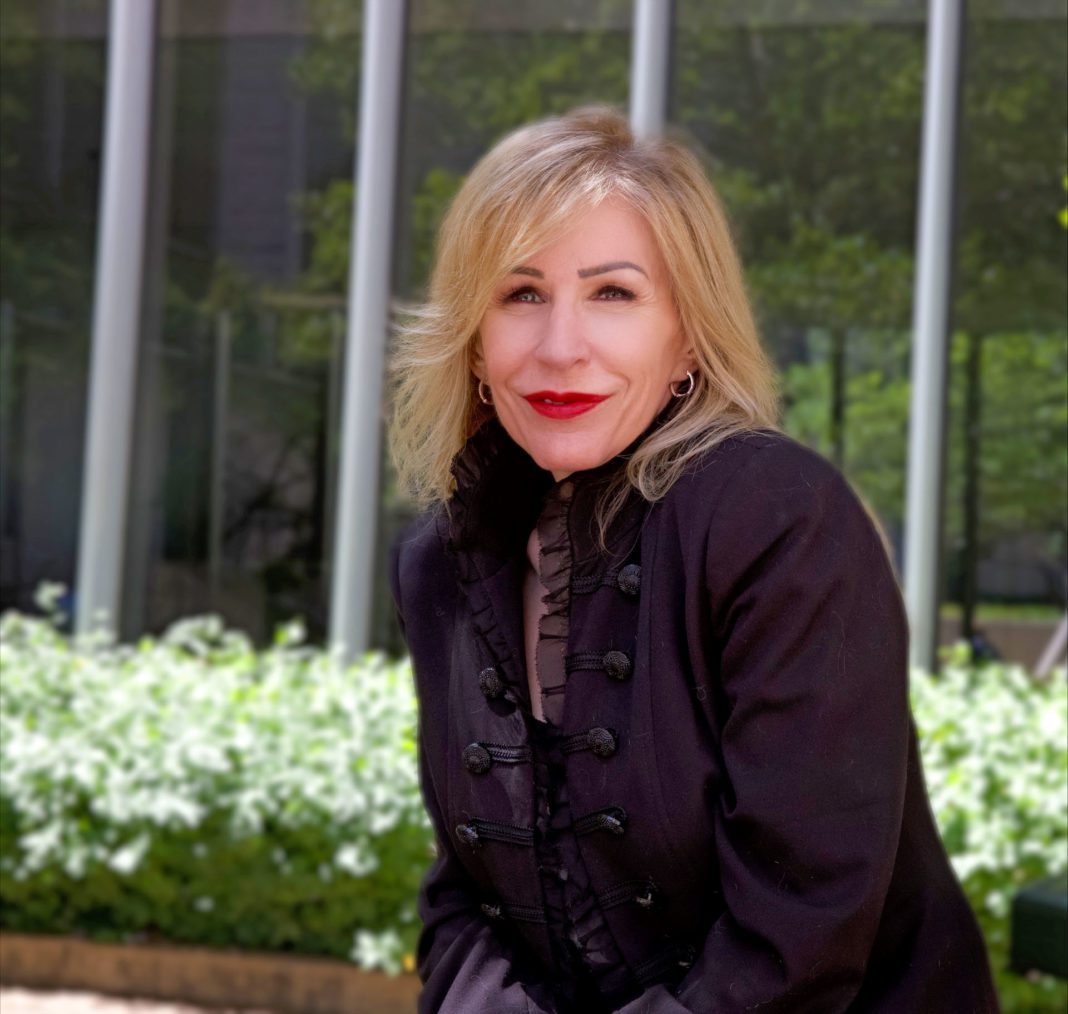Commissioner for the Oklahoma Department of Mental Health and Substance Abuse Services, Carrie Slatton-Hodges works to address mental health and substance use issues in the state. Focused on delivering services designed to address the needs of high-risk populations, Slatton-Hodges is leading the nation’s launch of the 988 Mental Health Lifeline. A graduate of Southern Nazarene University and Southwestern Oklahoma State University, Slatton-Hodges has been a licensed professional counselor for over 30 years. We caught up with her and got her thoughts on …
… her passion for mental health and addiction recovery.
I started my work in mental health in a rural setting covering eight counties, and have provided, developed and supervised most any type of behavioral health program you can think of. I’ve always loved to build programs and budgets and collect data to analyze what works and what does not.
I think I was born a counselor by nature, and I was raised by very intelligent parents who also strongly believe in giving back to society and to those less fortunate. One of the best things in life is to see someone go from being very ill, and to be around to see them at their best. I’ve had a lot of that luxury in my life and have seen in from a variety of vantage points during my professional career as a licensed professional counselor for over 30 years. I’ve held a variety of clinical and administrative positions, both in the public and private sectors, ultimately leading me to the role of commissioner. I have a very strong commitment to supporting the wellbeing of Oklahomans – improving mental health and addiction services and supports across this state, because everyone deserves to live a valuable, productive life in the community.
… her goals for Oklahoma, ten years from now.
I believe we must improve upon our suicide and overdose rates, because losing even one person is one too many, especially when there are evidenced-based prevention and treatment services to help those of us with suicidal thoughts and addiction disorders. We have many opportunities in front of us. We need to continue to develop our statewide crisis system by layering in more technology, mobile crisis response teams, additional urgent care centers, and to work more closely with law enforcement dispatch. We need to continue to develop and partner on diversion from the criminal justice system for those with mental health and addiction issues, and we need to continue to improve access to behavioral healthcare at all levels, and go more upstream with prevention strategies embedded within school settings. The public health issue of suicide and overdose will take all of us working together to make a significant impact long-term, and I believe we have a lot of positive momentum from many stakeholders that will help Oklahoma achieve this goal.
… the 988 Mental Health Lifeline.
The launch of 988 is just the beginning of a complete transformation of how people access treatment, receive support and understand how to help a loved one in need. The ease of only having to remember three digits (to call or text) to talk to someone immediately that understands mental health and addiction challenges is a gigantic win for Oklahoma and the rest of the nation. However, what comes after that is also so critically important. Being connected to your local treatment provider, having the ability to assist with scheduling an appointment, and following up to see if you had difficulty accessing care revolutionizes the approach we’ve taken previously.
In addition, the ability to dispatch mobile crisis teams when a face-to-face interaction is needed to help de-escalate a situation, most often without law enforcement, increases the willingness of people to reach out for help. This system helps to further destigmatize mental health and addiction.
At one point in my career, I was on-call for crisis evaluations from 5 p.m. until 8 a.m. for a year in western Oklahoma – and let me tell you, these diseases don’t discriminate. I’ve seen persons from every walk of life be brought to their knees by anxiety, depression, addictions and psychosis. I’ve also seen them get back up off their knees, with help and support and to go on to live full and healthy lives. The system that we’ve built in Oklahoma will help more people feel comfortable taking the difficult step of reaching out.
… her proudest accomplishments.
Just this last year, the ODMHSAS transformed our crisis response system to include distributing more than 24,000 iPads to community partners and clients; created an alternative transportation service to law enforcement for those in need of psychiatric care; reduced unemployment for the people we’ve served by 15.4%; and helped secure housing for 1,463 people who would have seen homelessness.
These are just the tip of the iceberg in terms of what we do every day at ODMHSAS. But at the end of the day, I must say I am the proudest of staff that show up each and every day, especially during COVID times, because they are committed to the mission of our organization and know how important it is to the people in their families and across their communities.
… what she’s looking forward to.
Professionally, I am the most excited about breaking ground on a new psychiatric hospital in Tulsa. This project has been in the works for quite some time, and being able to be part of it coming to life is truly an honor. So many people have been involved and it’s taken a village to see this through.
Personally, I’m looking forward to warmer days, where the bulbs bloom and the birds migrate back to my feeders. I look forward to sitting outside in the summer nights looking at the stars, taking walks and making s’mores. Spending time with my family and friends is the absolute best.
… her day-to-day.
Every day is very different, that’s for sure. As commissioner, I am responsible to see us fulfill our organizational mission and make progress toward our goals around mental health and addiction in this state. On any given day, that looks like meeting with key stakeholders to educate about our progress and opportunities, analyzing data to ensure program outcomes are performing as expected, helping our treatment provider network think through innovative approaches to delivering services, and presenting on national stages about what all we’re accomplishing for Oklahomans.
… what she wished more people knew about ODMHSAS.
There is a wealth of knowledge and experience helping to build one of the most comprehensive mental health treatment systems in the nation. The staff and partners of the ODMHSAS is replete with so many persons who care about issues of mental health and addiction, many through life experience or family experience, who are committed to setting the standard excellence in emotional well-being. The most important aspect to building successful programs and moving initiatives forward is bringing in the subject matter experts and developing partnerships to collectively accomplish what we know so many Oklahomans need us to do. Without including others in the development and really valuing the lived experience of others, we wouldn’t be as successful – and that is what state-led programming in Oklahoma is all about.
Photo courtesy the Oklahoma Department of Mental Health and Substance Abuse Services


























